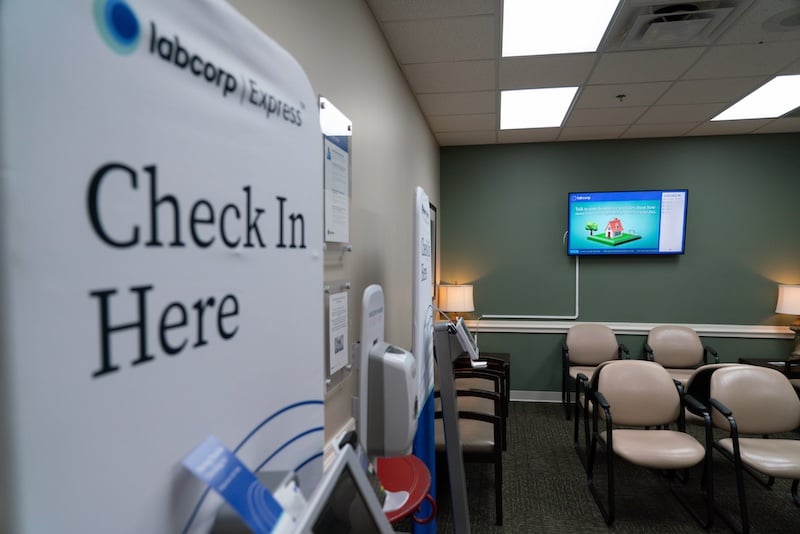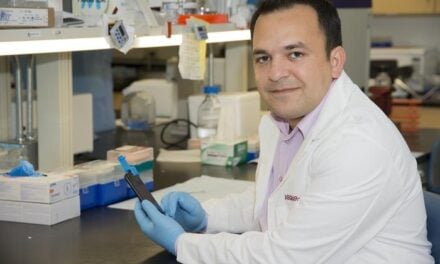Summary:
Labcorp is introducing FDA-approved self-collection solutions for HPV and STI testing, offering a convenient and private option to improve access to essential health screenings.
Takeaways:
- Self-collection for HPV testing can help increase cervical cancer screening rates, addressing a key barrier to early detection and treatment.
- Labcorp’s self-collection STI testing provides a discreet option to encourage timely diagnosis and treatment of infections.
- These solutions are available nationwide at Labcorp’s 2,200 Patient Service Centers and healthcare settings with a physician’s order.
Labcorp, a global provider of innovative and comprehensive laboratory services, announced it will offer nationwide a U.S. Food and Drug Administration (FDA) approved human papillomavirus (HPV) self-collection solution that can help women and their physicians asses the risk of developing cervical cancer. Labcorp will also offer a vaginal swab self-collect option for sexually transmitted infection (STI) testing. Both solutions are available by physician order and can be completed privately in a healthcare setting or at any one of Labcorp’s 2,200 Patient Service Centers (PSCs) nationwide.
“Many patients delay or avoid necessary health screenings due to discomfort, stigma or time challenges, which can lead to health complications and further spread infections,” says Brian Caveney, MD, JD, MPH, Labcorp’s chief medical and scientific officer. “Labcorp is now offering self-collection at our PSCs and healthcare settings such as physician offices to break down these barriers. With convenient access to essential tests and screenings, patients can take control of their health, on their own terms, when it’s most convenient for them.”
Self-Collection Expands Access to Cervical Cancer Screening
Each year in the U.S. more than 13,000 women are diagnosed with cervical cancer and approximately 4,000 die from this preventable disease. HPV testing is a crucial tool for preventing cervical cancer through early intervention and treatment. According to the U.S. Centers for Disease Control and Prevention (CDC), one in four women of screening age were not up to date with cervical cancer screening recommendations in 2021.
Traditionally, cervical cancer screening involves a healthcare provider collecting a specimen during a Pap smear and forwarding it to a laboratory for testing. In 2024, the FDA approved self-collection tests for cervical cancer screenings.
“Cervical cancer is preventable, yet screening rates among women in the United States are alarmingly low,” says Caveney. “By offering an easily accessible and less invasive alternative, self-collection can help improve screening rates by easing the load on physicians and opening up additional access points to reach those who might avoid or not have access to traditional in-office exams.”
A Convenient and Private Screening Option for STIs
Labcorp will also offer a vaginal swab self-collect option for STI testing, including chlamydia, gonorrhea, trichomonas or mycoplasma genitalium (Mgen). According to the CDC, 2.4 million cases of STIs were diagnosed and reported in 2023. Early detection can help minimize long-term effects for patients and increase the effectiveness of treatment.
“STI testing can feel intimidating or stigmatizing, which leads to delayed or skipped screenings. Providing a private and discreet self-collection option empowers individuals to take control of their sexual health and can expedite the diagnosis to treatment timeline, ultimately driving better health outcomes,” says Caveney.
Key Features of Labcorp’s HPV and STI Self-Collection Offerings:
- Self-collection for both HPV and STI testing can be ordered by a physician and completed in a healthcare setting or one of Labcorp’s 2,200 PSC locations nationwide.
- Results are sent electronically to the ordering physician and to the patient via their Labcorp Patient account.
- If positive, patients should follow up with their physician to determine treatment.
Featured Image: Labcorp will begin offering self-collection options for HPV and STI screening at its patient service centers and participating physician offices. Photo: Labcorp




